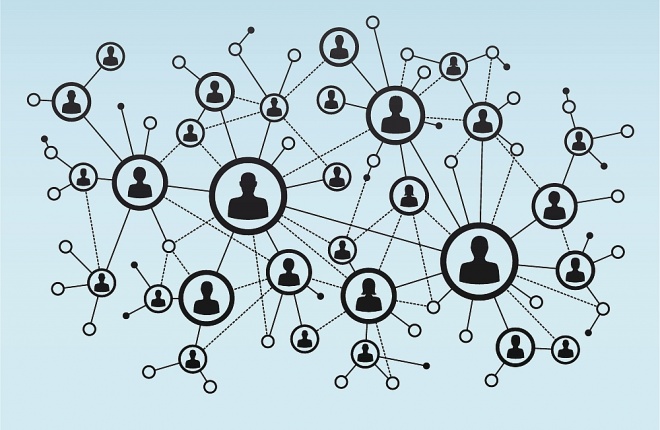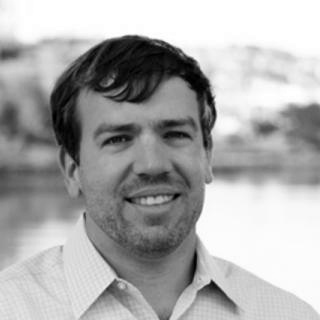
Steve Garrity is an expert in developing scalable enterprise software solutions and leads one of the strongest teams in the industry at Hearsay Social.
Hearsay Social is a software-as-a-service social media marketing management platform. Former Microsoft executive Steve and Starbucks board member Clara Shih founded the company in 2009. They initially intended Hearsay Social to be used to help larger companies promote their local branches via social media but have since described the company as a more general “social selling platform” The service operates by using social networking services such as Facebook, LinkedIn, and Twitter as a way for clients to market to various customer bases.
He personifies entrepreneurship and has such a contagious positive energy. However what differentiates Steve from other leaders is his drive to do better, his staff, his company and his customers.
Tell us a little bit about your background
I grew up moving around a lot, which got me interested in way too many things … my dad taught me to program computers when I was eight or nice, and they’ve managed to hold my attention ever since. After high school, I was lucky enough to study computer science at Stanford University, where I fell in love with Silicon Valley and the allure of building brand-new things. I joined a small startup, Fortify Software, during my fourth year and worked there in the basement of a legendary venture capital firm, Kleiner Perkins Caufield & Byers, for a while before deciding I should spend a few years at a bigger company just to see what it was actually like. I moved to Seattle in 2005 and spent almost four years at Microsoft before I decided I was ready to strike out on my own, so I moved back to Palo Alto and started Hearsay Social with a college classmate and friend of mine, Clara Shih.
What is Hearsay Social about?
We started Hearsay in 2009 with the simple goal of helping businesses figure out how to use social media. We’d seen it changing people’s personal lives, and Clara had written a best-selling book (The Facebook Era) on how it could change business, but it hadn’t really taken hold yet. We thought there was a huge opportunity to help companies actually operationalise this change and use social to really improve their relationships with customers. Over the last few years we’ve evolved to serve primarily financial services institutions (including most of the top banks and insurance companies in the US and increasingly Europe), and expanded our platform beyond social to really help advisors handle all of the digital aspects of their prospect and customer relationships.
How is social media changing the way we work?
Social media has dramatically increased the number of people we can keep in touch with – it’s not that you have best friends, but you have some level of awareness of what’s happening in their lives. This is happening because we’ve moved to more broadcast-based updates…instead of having to target the people you want to update on your life (whether by letter, telephone, or email), you can now publish updates into the ether, and I can consume them at my leisure. And by digitising this entire process, we can actually build intelligence systems that will make sure I see the right updates at the right time. For example, it wasn’t too important to me six months ago that an acquaintance of mine from freshman year of college had moved from Singapore to Hong Kong (great for him, but in a world of thousands of acquaintances, that didn’t cross my radar). But now that I’m landing in Hong Kong in a few hours, it’s very relevant – social media has reconnected us, and I’ll get to see him this evening for the first time in years. Even in a world of directed email updates we’d have lost touch years ago.
What are you so passionate about entrepreneurship?
I just love the challenge of it—the process of creating something from nothing. I love looking around our offices and thinking about the fact that five or six years ago, none of this existed…it was literally a random thought that we’ve collectively turned into reality. It’s been a huge challenge—in particularly challenging times, I like to remind our team that there have been a lot more hard days than easy days—but to me, that’s what makes it worth doing. Watching the people on the team grow and watching our customers succeed is really rewarding, but fundamentally I just enjoy the challenge of it all. That’s a double-edged sword of course…
In your opinion what are the real challenges for leaders?
Prioritising. There are a million things you could be doing—you personally, your team, your whole company—but you can only actually do a few of them. It’s funny, we always worry about being “engineering constrained”—if only we had more software engineers, we could build more great stuff. Now we’ve only got about 50 engineers on the team, so that sounds reasonable…until you realize that used to be the same refrain at Microsoft, which had something like 30,000 engineers. It’s never the actual numbers that are holding you back; it’s your ability to direct the appropriate attention to the problem. Closely related is knowing when something is “done”—you can always improve and polish things, and sometimes you need to, but oftentimes you just need to ship. I’m not sure if he said it originally, but I always credit DHH at 37signals with making the point that “if you aren’t embarrassed later by the first version of your product, you probably waited too long to launch it.” But there’s a fine line between shipping something good that’s not perfect (where you’ll learn a lot) and just shipping bad, incomplete work.
How important is downtime for leaders?
Is this a trick question, since you know I’m bad at it? I think it’s important for everyone, really—to get downtime to rest and recharge, but also to consolidate thoughts and lessons and decide what’s important. I’ve been spending a lot of time recently thinking about this abstract concept of the rhythms of life, of the times when you’re high or low energy, and what to do about it. For a long time I tried to fight periods of low energy, to get back as quickly as possible to high energy with caffeine, exercise, or just mental discipline. But I’m increasingly starting to believe—in large part based on some things that you pointed out to me in our time at IMD together—that the low energy periods aren’t bad, just different. They’re actually critical places to stop and reflect and make sure you’re focused on the right things as a person and as a leader. Still very much a work in progress for me, though.
Why is it important to create habits and grow new ones?
Unless you’re already perfect, there’s something that you can do better, some place that you can improve. I think one of the many roles of a leader is continually improving him- or herself, as well as the organisation, so that every day, every week, you’re getting better.
What is the best piece of advice you ever got?
That’s a tough one. Can I cheat and list a few?
My dad used to say “if you don’t miss a plane every now and then, you spend too much time waiting in airports.” I think he looks at my schedule now and regrets that advice, but I live by it.
Dharmesh Shah, the CTO of Hubspot, says “it’s never the bad ideas that kill you—you’re smart enough to weed those out. It’s the good ideas that will kill you, because they take time away from the really great ideas.” I’ve always tried to do too much, to say yes to everything, and this reminds me to ruthlessly prioritize every day.
Mike Vernal, a friend from Microsoft, used to always say, “let’s be intentional about this,” often when I’d heard the first half of a problem and already thought I had a solution. Be intentional has become a mantra for me to remind myself to slow down and think, maybe save some time down the road with a slower but more complete plan.
What's next for us?
For you and I? Maybe I’ll get an invite to the Swiss Alps for ski tour?
What's next for you?
Hong Kong and some time with customers, then back to the States for a week or two! For the company it’s all centred on growth, particularly in our new product lines and international markets.

Steve Garrity is co-founder and CTO of Hearsay Social. Steve is a former program manager and engineer at Microsoft who transitioned from working at a large corporation to founding his own start up. Hearsay Social is a leading enterprise software for social media management. Hearsay Social helps large companies manage compliance, marketing, and sales on social media platforms like Facebook, LinkedIn, Twitter, Google+, and Foursquare. While working at Microsoft, Steve developed the Azure.net services platform and worked as a product manager at Fortify Software. At Stanford University, Steve was a Mayfield Fellow while studying Computer Science.
For more insights into social media mananagment follow Steve at @stgarrity. Sunita tweets at @WalkTheTalkGVA
Image: Thinkstock

